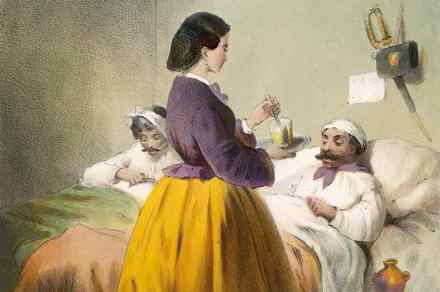Death was everywhere for the Victorians, but it was never commonplace
Death’s great paradox is its inconstant constancy. Its forms and rituals change from generation to generation. In our own era, antibiotics have reduced the chance of a fatal infection, and average life expectancy has risen to our eighties. Direct cremation means we can even ship Auntie Maudie, when her time comes, to the crematorium sight unseen and have her ashes returned via DHL. Our existential encounter with death in society is muted to a murmur. Unlike the Irish and their open-coffin wakes, the English almost never now see a corpse. So it is hard to imagine how our great-great-grandparents lived in a world where fatal fevers struck at random and




